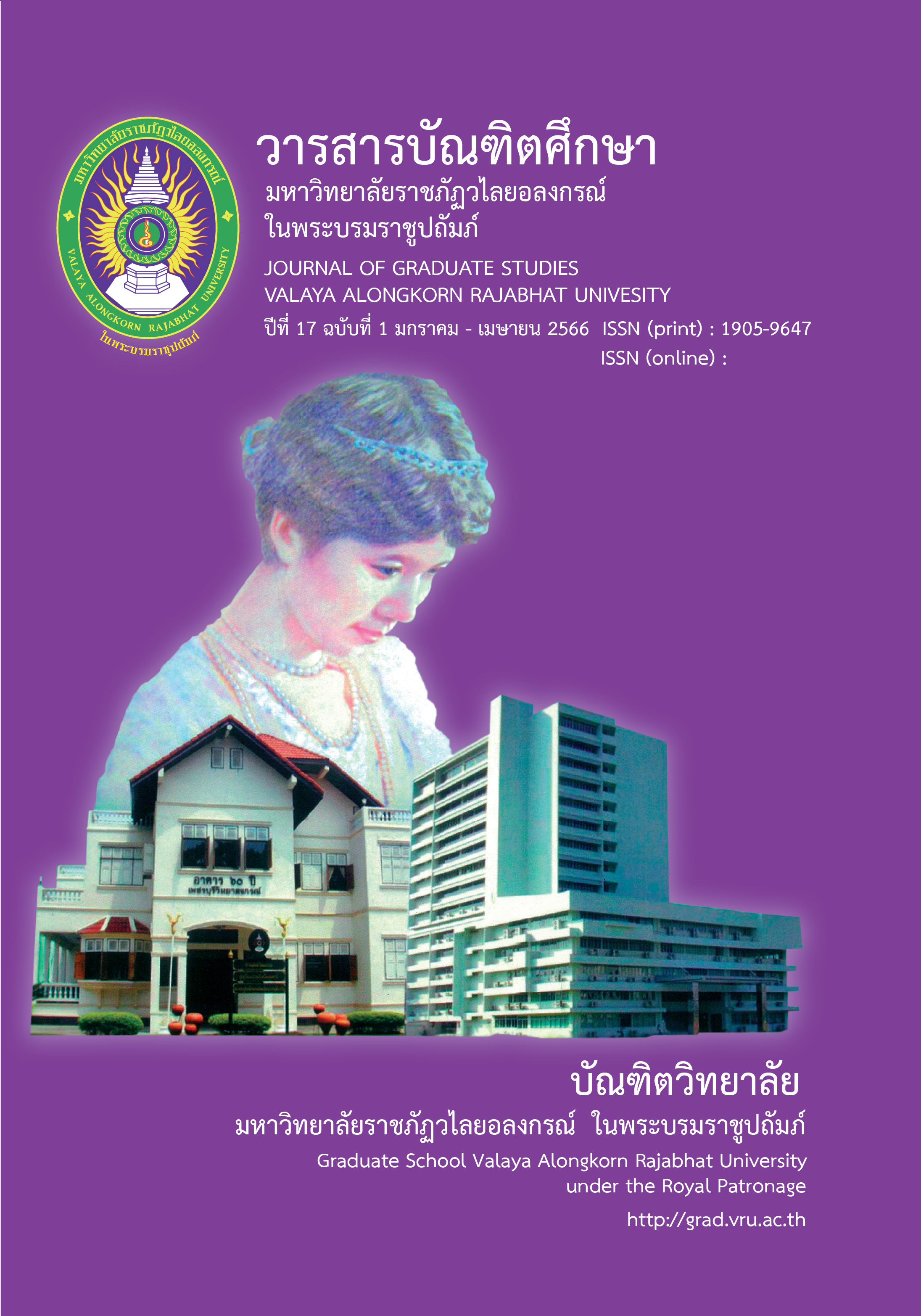STEM EDUCATION THROUGH AN ENGINEERING DESIGN PROCESS ON THE PLANT RESPONSE FOR PROMOTING COLLABORATIVE PROBLEM SOLVING COMPETENCIES OF MATHAYOMSUKSA 5 STUDENTS
Main Article Content
Abstract
The objectives of the action research were 1) to study the teaching methodology using STEM education through the engineering design process to promote Collaborative Problem Solving (CPS) competencies on plant response and 2) to study the results of the promotion for CPS competencies. The participants were 35 Mathayomsuksa 5 students studying in science and mathematics program of the first semester, academic year 2020. The research was carried out by using 3-cycle research processes. The tools consisted of lesson plans, classroom reflection forms, CPS competency observation forms, and the CPS competency assessment. The data were collected and analyzed by Content analysis. The method of triangulation was used for data credibility.
The results of the research are as follows: 1) each step of learning activities has to emphasize on the roles of members, the equality in group discussion, and a huge amount of assignment with the limited time. The works designed and created by the students were evaluated to find the effectiveness of their problem solving. Learning in the assigned situation, every member was able to exchange their ideas to find the best way to solve the problem. The students’ duties in the group were based on their abilities. 2) The learning management was able to promote students’ CPS competencies at a high level.
Article Details

This work is licensed under a Creative Commons Attribution-NonCommercial-NoDerivatives 4.0 International License.
บทความทุกเรื่องได้รับการตรวจความถูกต้องทางวิชาการโดยผู้ทรงคุณวุฒิ ทรรศนะและข้อคิดเห็นในบทความ Journal of Global of Perspectives in Humanities and Social Sciences (J-GPHSS) มิใช่เป็นทรรศนะและความคิดของผู้จัดทำจึงมิใช่ความรับผิดชอบของบัณฑิตวิทยาลัย มหาวิทยาลัยราชภัฏวไลยอลงกรณ์ ในพระบรมราชูปถัมภ์ กองบรรณาธิการไม่สงวนสิทธิ์การคัดลอก แต่ให้อ้างอิงแหล่งที่มา
References
Buachoon, N. (2019). phonkān čhatkān rīanrū tām nǣokhit sa tem sưksā thī mī tō̜ phon samrit thāngkān rīan wichā khēmī læ khwāmsāmāt nai kān kǣ panhā khō̜ng nakrīan chan matthayommasưksā pī thī sī [Effects of stem education approach on chemistry achievement, problem solving ability of grade 10 students]. Journal of Graduate Studies Valaya Alongkorn Rajabhat University. 14(3), 53-63.
Cholsin, J. (2016). kānwičhai patibatkān phư̄a phatthanākān čhatkān rīanrū rư̄ang parimān sān samphan tām nǣo sa tem sưksā thī nēn krabūankān ʻō̜k bǣp chœ̄ng witsawakam thī songsœ̄m samō̜n thana kān kǣ panhā bǣp rūammư̄ [Operational research to develop content learning management relationship according to STEM Education that focuses on the engineering design process that promotes the equation Collaborative problem solving]. Thesis M.Ed., Naresuan University, Phitsanulok.
Good, L. & Brophy, E. (1978). Looking in classrooms. (2nd ed.). New York: Harper & Row.
Householder, D. L. & Hailey, C. E. (2012). Incorporating engineering design challenges into STEM courses. Retrieved from http://digitalcommons.usu.Edu/ncete_publications/166.
Kijkuakul, S. (2014). kānčhatkān rīanrū witthayāsāt : thitthāng samrap khrū satawat thī yīsipʻet [Learning management in science: direction for teacher in 21th century]. Phetchabun: Julladis Printing.
Kijkuakul, S. (2015). sa tem sưksā . [STEM Education]. Journal of Education Naresuan University. 17(2), 201-207.
McNaught, C. (2014). Implementing research based education at UCL. Retrieved from http://www.ycl.ac.th/teachinglearning/connectedcurriculum/researchbasededucation.
Morgan, J. R., Capraro, M. M. & Capraro, R. (2013). STEM project-based learning: An integrated science, technology, engineering, and Mathematics (STEM) approach. Rotterdam: Sense.
Neadratsamee, C. (2017). kānphatthanā kānčhatkān rīanrū bǣp sa tem sưksā thīnēn krabūankān ʻō̜k bǣp chœ̄ng witsawakam thī songsœ̄m samatthana kān kǣ panhā bǣp rūammư̄ nai rư̄ang khēmī singwǣtlō̜m khō̜ng nakrīan chan matthayommasưksā pī thī sī [The development of learning management that focuses on a process Engineering design that promotes competency in solving chemistry problems Environment of Mathayomsuksa 4 students]. (Master's thesis). Naresuan University. Phitsanulok.
NRC. (2012). A framework for K-12 science education: practice’s, crosscutting concepts, and core ideas. Washington, DC: The National Academies.
OECD. (2013). PISA 2015: Draft collaborative problem solving framework. Paris: OECD.
Rosen, S. & Foltz, P. W. (2014). Assessing collaborative problem solving through automated technologies. Research and Practice in Technology Enhanced Learning. 9(3), 389-140.
Siriphatratchai, P. (2013). STEM Education kap kānphatthanā thaksa nai satawat thī yīsipʻet [STEM Education and Skill Development in the 21st Century]. Executive Journal. 33(2), 49-56.
The Institute for the Promotion of Teaching Science and Technology (IPST). (2018). kān kǣ panhā bǣp rūammư̄ (Collaborative Problem Solving) bot sarup samrap phūbō̜rihān PISA sō̜ngphansiphā [Collaborative Problem Solving Executive Summary PISA 2015]. PISA Thailand. Bangkok: The Institute for the Promotion of Teaching Science and Technology. Ministry of Education.


